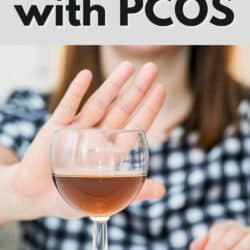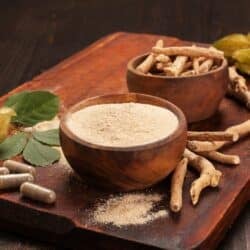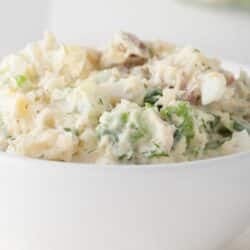5 Reasons to Avoid Alcohol with PCOS
In this article, we’ll review the connection between alcohol and PCOS, and why you may wish to avoid alcohol while managing symptoms of this condition.
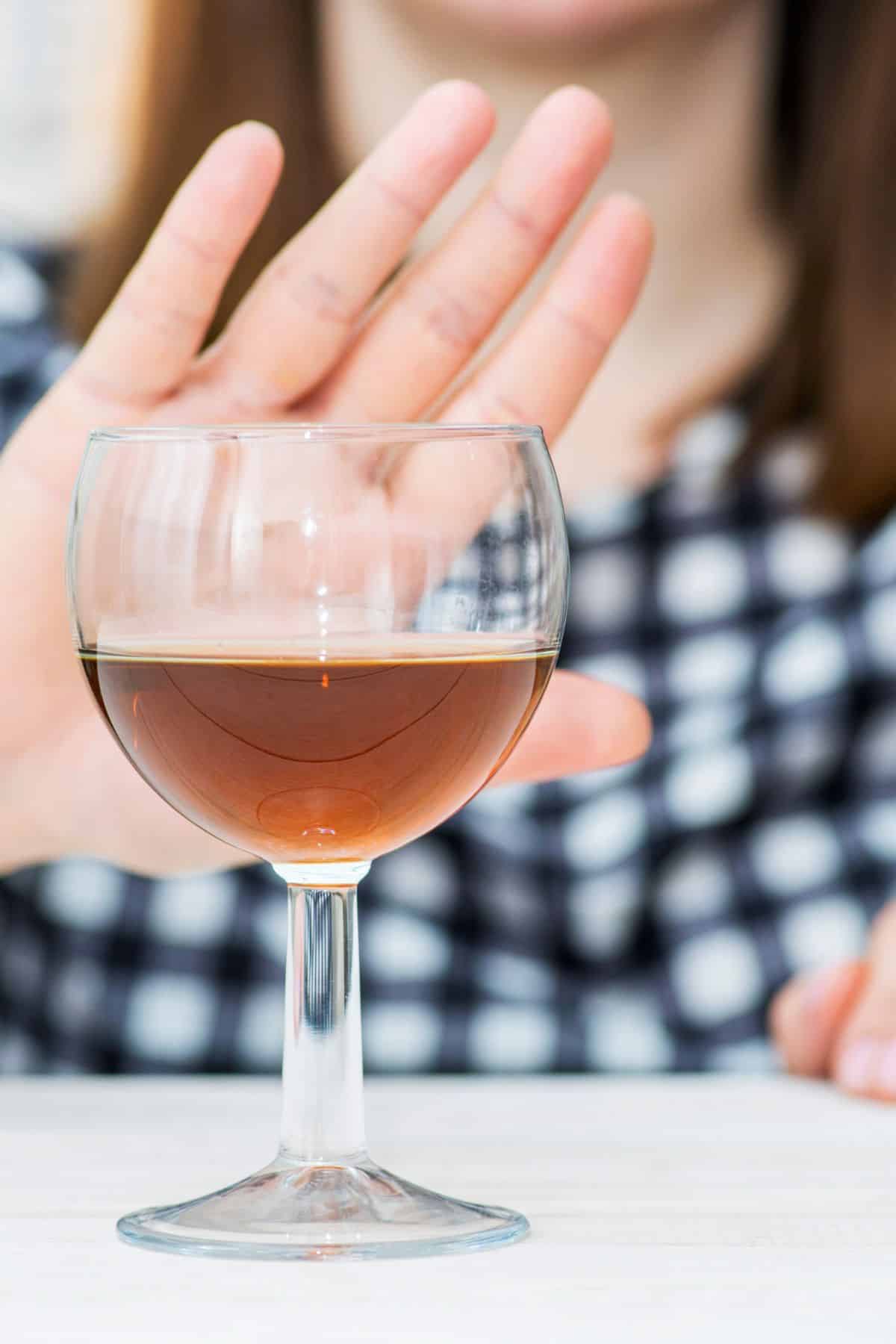
Polycystic Ovary Syndrome, or PCOS, is a common health condition that affects about one in ten women of reproductive age. It’s characterized by a hormonal imbalance that can cause a range of symptoms, including irregular periods, acne, excess hair growth, and difficulties with fertility.
More than just a reproductive health issue, PCOS is also linked to long-term health risks like heart disease and diabetes if it’s not managed properly.
Reasons to Avoid Alcohol with PCOS
If you have PCOS or risk factors for PCOS, you might be wondering how moderate alcohol consumption can affect symptoms. Let’s review the potential effects of alcohol on PCOS.
1. Worsening of insulin resistance
Insulin resistance is an issue that affects many women with PCOS, whether they are obese or lean.
Also known as insulin sensitivity, it is a condition that can cause your body to create too much testosterone. This can negatively impact ovulation and affect fertility. It can also cause you to gain weight and can make it hard to lose weight in the future.
When you eat, your levels of the hormone insulin should usually rise. This then prompts your liver and muscles to turn the sugar from your blood into energy. Once that happens, your insulin and blood sugar levels should drop.
With insulin resistance, your pancreas still produces insulin, but your body’s cells don’t respond to it properly. As a result, your pancreas starts to make even more insulin – pushing your levels too high.
Finally, you reach the point where your pancreas simply can’t produce enough insulin to control your blood sugar levels. This can sometimes lead to type 2 diabetes.
The consumption of alcohol is believed to trigger or worsen insulin resistance, depending on how much is consumed.
Studies on light to moderate drinking have had mixed results, with some research saying it contributes to the condition and some showing the opposite. However, with heavy drinking, the results are much more clear and show that excess alcohol impairs the body’s ability to process blood sugar.
Therefore, if you have PCOS and are concerned about becoming insulin resistant, you may wish to consider these potential effects of alcohol on your blood sugar.

2. Potential for weight gain
If your PCOS causes you to struggle with your weight, alcohol will only make the problem worse. And there are many reasons for this.
First, it is high in calories – in fact it’s easy to consume hundreds of calories through drinking without even realizing you’re doing it.
Worse still, these are “empty calories”, with little to no nutritional value.
Alcohol can also prompt feelings of hunger – invariably for calorie-laden foods high in fat and salt. It also affects your self-control, making you much more likely to binge on things you wouldn’t usually eat.
Another problem is that alcohol has a negative impact on your liver.
The liver acts as the body’s filter, helping expel harmful substances like alcohol and drugs. It also plays a role in the way you metabolize (break down) food.
But drinking too much alcohol can lead to a condition called alcoholic fatty liver disease, affecting this process of metabolism and the way in which your body stores fats and carbohydrates.
This can make it very difficult to lose weight.
Finally, alcohol can stop your body from burning fat. That’s because your body will burn alcohol as a source of fuel before burning the lipids from fats or the glucose from carbohydrates. The extra glucose and lipids that build up are then deposited as fat.
Women of reproductive age who have PCOS may wish to avoid alcohol to avoid the potential for weight gain and other negative symptoms of this disorder.
3. Hormone disruption
Hormonal imbalances – particularly those affecting your menstrual cycle – are a common feature of PCOS.
They can lead to a range of unwelcome symptoms, including irregular periods or irregular menstrual cycles, infertility, hair loss, hirsutism (the growth of facial hair or excess body hair), and acne.
Drinking alcohol can lead to an even greater imbalance and make these symptoms worse.
It has been shown in studies to increase estrogen levels by slowing the breakdown of estrogen in the liver and increasing the rate of conversion of testosterone to estrogen. Alcohol has also been shown to impair the production of progesterone.
On the other hand, by making lifestyle changes including avoiding alcohol, you may be able to reduce or even reverse any symptoms of PCOS with this holistic approach.
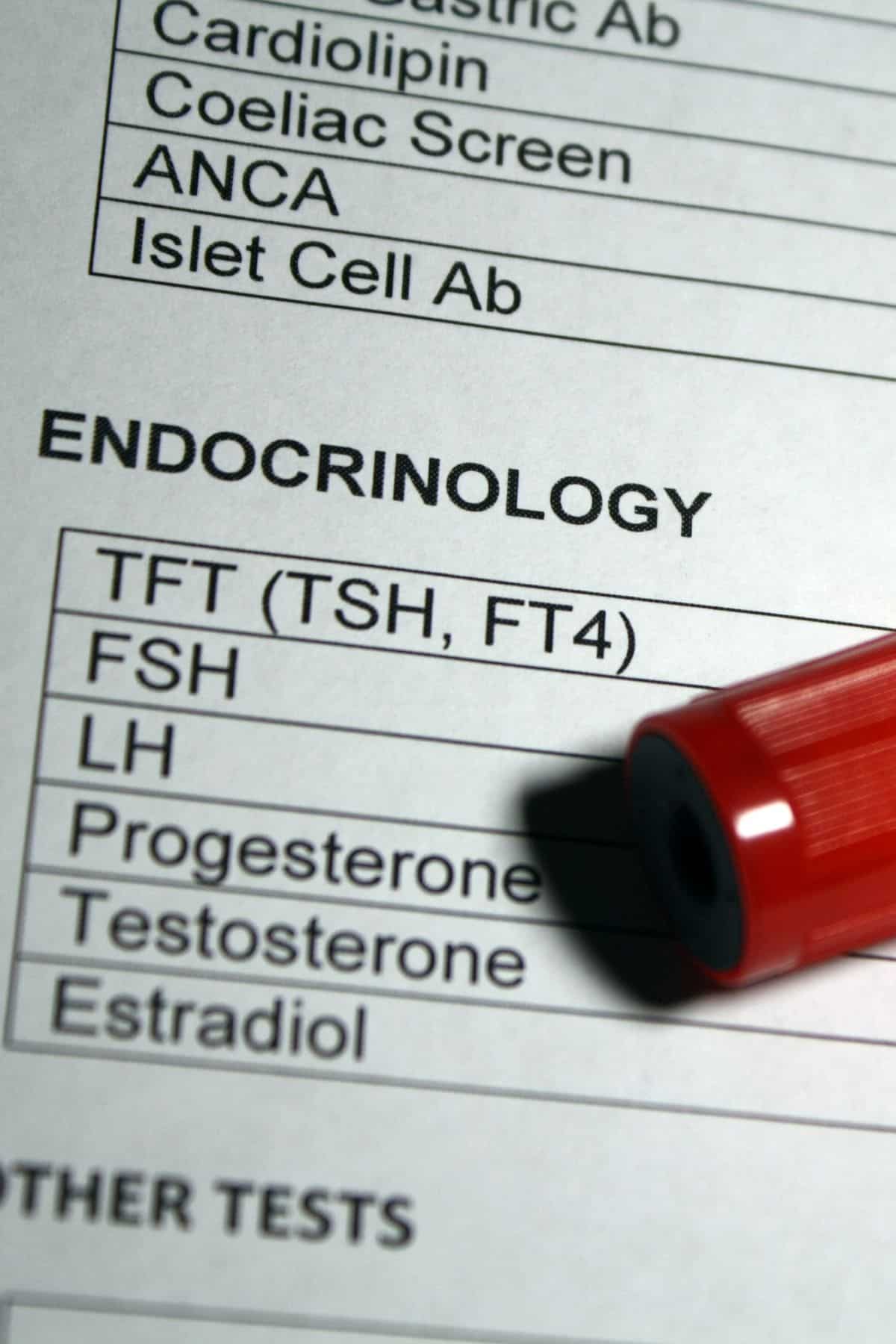
4. Increased inflammation
Low-grade inflammation occurs when the body’s white blood cells respond to harmful substances. It is a normal function of the immune system.
But there are studies showing that people with PCOS experience long-term inflammation that can prompt their ovaries to produce androgens, resulting in a range of symptoms.
Unfortunately, drinking alcohol worsens inflammation because it damages the healthy balance of bacteria in the gut, along with the liver’s ability to detoxify the body. This can eventually lead to non-alcoholic fatty liver disease, plus worsening of PCOS symptoms.
5. Negative effects on sleep
While alcohol has a sedative effect and may help you fall asleep more quickly, the truth is that it can actually stop you from sleeping soundly all night.
Indeed, studies have shown that women with PCOS are far more likely to suffer from problems like obstructive sleep apnea and excessive daytime sleepiness than women without the condition.
Alcohol is also associated with lower slow-wave sleep and more rapid eye movement sleep than normal.
Dehydration can play a part, too, and you may often find yourself waking in the night feeling thirsty after consuming alcohol.
Yet adequate sleep is essential for overall health and can help control PCOS symptoms like fatigue and mood changes, making it important to limit your alcohol intake as much as possible. Getting better sleep can also improve your mental health and reduce stress levels.

Navigating Alcohol Consumption with PCOS
While alcohol doesn’t cause PCOS, it can exacerbate the symptoms and make managing the condition more challenging.
Ideally, you should avoid it altogether as part of your efforts to bring your symptoms under control.
But since this can be easier said than done, you should at least consider moderating your intake as much as possible.
To give you some perspective, a moderate intake of alcohol for women is one drink per day, either 12 oz beer, 1.5 ounces of hard liquor, or a 5 oz glass of wine.
- I recommend avoiding beer, sugary mixed drinks, and cocktails, as these can quickly raise your insulin and glucose levels.
- I also recommend eating before or while consuming alcohol, as this prevents it from being absorbed into your blood as readily.
- Drink plenty of water and slowly savor the alcoholic drink you have so that you feel more satisfied and less likely to reach for another.
Alcohol and PCOS FAQs
No, drinking alcohol isn’t believed to cause PCOS.
Yes, alcohol can exacerbate your symptoms in several ways.
It can worsen insulin resistance, disrupt your hormonal balance, increase inflammation, cause you to gain weight, and stop you from getting the restful sleep you need.
When it comes to light or moderate drinking, studies haven’t yet established whether alcohol worsens or improves insulin resistance.
But it is very clear that heavy drinking worsens insulin resistance, so you should be very careful to avoid consuming alcohol in large amounts if you have PCOS.
It is never safe to drink alcohol when trying to conceive, either with or without PCOS.
Research published by the BMJ showed that the chances of conceiving are reduced by 18% in women who consume more than 14 servings of alcohol per week.
The worst types of alcoholic drinks to pick if you have PCOS are beer, sugary mixed drinks, and sweet wine.
This is because these alcoholic beverages can raise insulin levels and glucose levels very rapidly.
Red wine may be a better choice. That’s because it contains resveratrol, a polyphenol found in grapes that has been shown to help improve insulin sensitivity.
More PCOS Holistic Health Resources
Summary
Understanding the links between alcohol and PCOS can help you make informed decisions about your health and keep your troublesome symptoms under control. If you do choose to consume alcohol, be sure to keep your consumption in moderation and choose red wine above sugary drinks if possible.
Don’t forget to join my newsletter list to get exclusive clean eating recipes and tips. The newsletter is 100% free with no spam; unsubscribe anytime.
About the Author: Carrie Forrest has a master’s degree in public health with a specialty in nutrition. She is a top wellness and food blogger with over 5 million annual visitors to her site. Carrie has an incredible story of recovery from chronic illness and is passionate about helping other women transform their health. Send Carrie a message through her contact form.
Note: this post is for informational purposes only and is not intended as medical advice. Please consult your healthcare provider for recommendations related to your individual situation.


